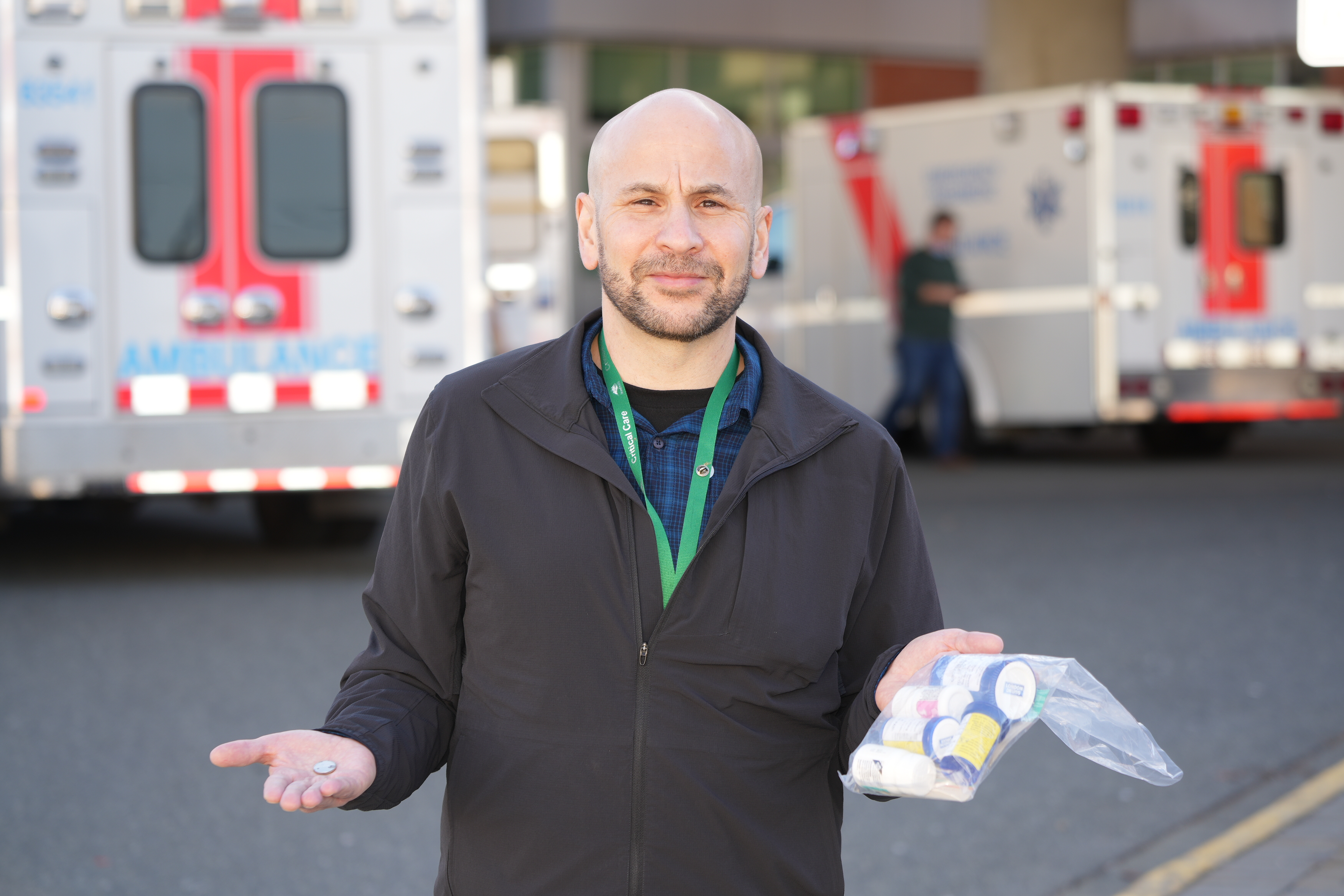An Island Health ICU doctor is encouraging parents to be aware of potential poisoning risks in the home, this Safe Kids Week, June 3 to 9.

Dr. Daniel Ovakim, ICU physician at Victoria General and Royal Jubilee Hospitals, is raising awareness of poisoning injuries and sharing actions parents and caregivers can take.
“There are many potential poisons in our homes, such as medications, household cleaners, plants, and cannabis products,” said Dr. Ovakim, who also works as a toxicologist for the BC Drug and Poison Information Centre (DPIC). “The frustrating part is that most poisonings are preventable.”
Nearly 10,000 (9,623) poisonings in children five and under were reported to the BC Drug and Poison Information Centre (DPIC) in the Island Health region over the last five years (2019-2023). Most poisonings in children happen just before lunch and before dinner when children are hungry and least supervised.
Pain medication is the number one cause of poisonings in the region, with 1,112 incidents reported. Child-resistant packaging is required by law for certain medications, like Acetaminophen and Ibuprofen, but a small percentage of children are still able to open the containers.
Dr. Ovakim said, “Though bottles are labelled as child-proof, they are child-proof for most children, not all children. It is best to use small containers that only have small doses so if a child does break into a container, there is a less toxic amount.”
While less frequent, poisonings involving cannabis can be very serious. There were 99 incidents reported with half requiring healthcare. Cannabis edibles can have a more toxic effect than other forms as they can be very potent, and when edibles resemble common snacks like brownies and gummy bears, a young child may not be able to tell the difference.
“Cannabis edibles are becoming more common, especially since legalization, and with packaging that may appeal to kids,” said Dr. Ovakim. “There’s the notion that cannabis is safe but in the doses that are available in edibles and potency we are seeing now, it is definitely not safe for younger kids. We’ve seen children in the ICU on a ventilator after ingesting cannabis products.”
Batteries are also to blame for more serious poisonings, causing life-threatening internal chemical burns in as little as two hours. There were 55 poisonings reported and more than half required healthcare. Many of these cases involved small, disc-shaped button batteries, commonly used to power toys, watches, hearing aids and car key fobs.
Dr. Ovakim said, “As a parent myself, I know how easy it is to get distracted and we can’t always be around, and kids can be very clever. Being a toxicologist I am more familiar with the risks, and I have educated my kids in what to watch for and what things to avoid. Teaching our children can go a long way in avoiding poisonings.”
Other common items at home that are known to cause poisonings in children include; alcohol, tobacco and e-cigarette products, household cleaners (like bleach); vitamins; laundry detergent; personal care products like nail polish; car supplies like washer fluid; pesticides; and certain plants.
The BC Poison Control Centre is available 24 hours every day for advice and information.
For suspected poisonings, call 604-682-5050 or 1-800-567-8911. If the person loses consciousness or has difficulty breathing, call 9-1-1.
Poison prevention tips for medication and cannabis:
- Always store medicine or cannabis packages, bottles of pills or syrups, locked up high, out of sight and out of reach of children.
- Never refer to medicine as candy.
- Keep products in their original containers, to help you remember the type and dose.
- Keep all products in child-resistant packaging.
- When visitors come to your home, keep their belongings out of your child’s reach. And when your children visit others’ homes, such as grandparents, relay these tips to the hosts and keep your eye out for potential risks.
- Avoid using cannabis products and e-cigarettes in front of children. Children often want to do the same things their parents and caregivers do.
Poison prevention tips for batteries:
- Consider whether you can reduce the number of consumer products you bring into your home that use button batteries
- If you bring consumer products into your home that use these batteries, ensure the products’ battery compartment is secure and requires a tool like a screwdriver to access the button battery)
- Treat button batteries like any other form of poison and keep them in a locked cabinet out of reach of children. Be sure to secure new batteries in their package, as well as dead batteries since they can still cause a chemical burn.
Parachute Safe Kids Week is an annual awareness campaign designed to bring attention to predictable and preventable injuries in children.
For more tips and resources visit:
Parachute Canada Safe Kids Week – Parachute
HealthLinkBC Preventing Poisoning in Young Children | HealthLink BC
